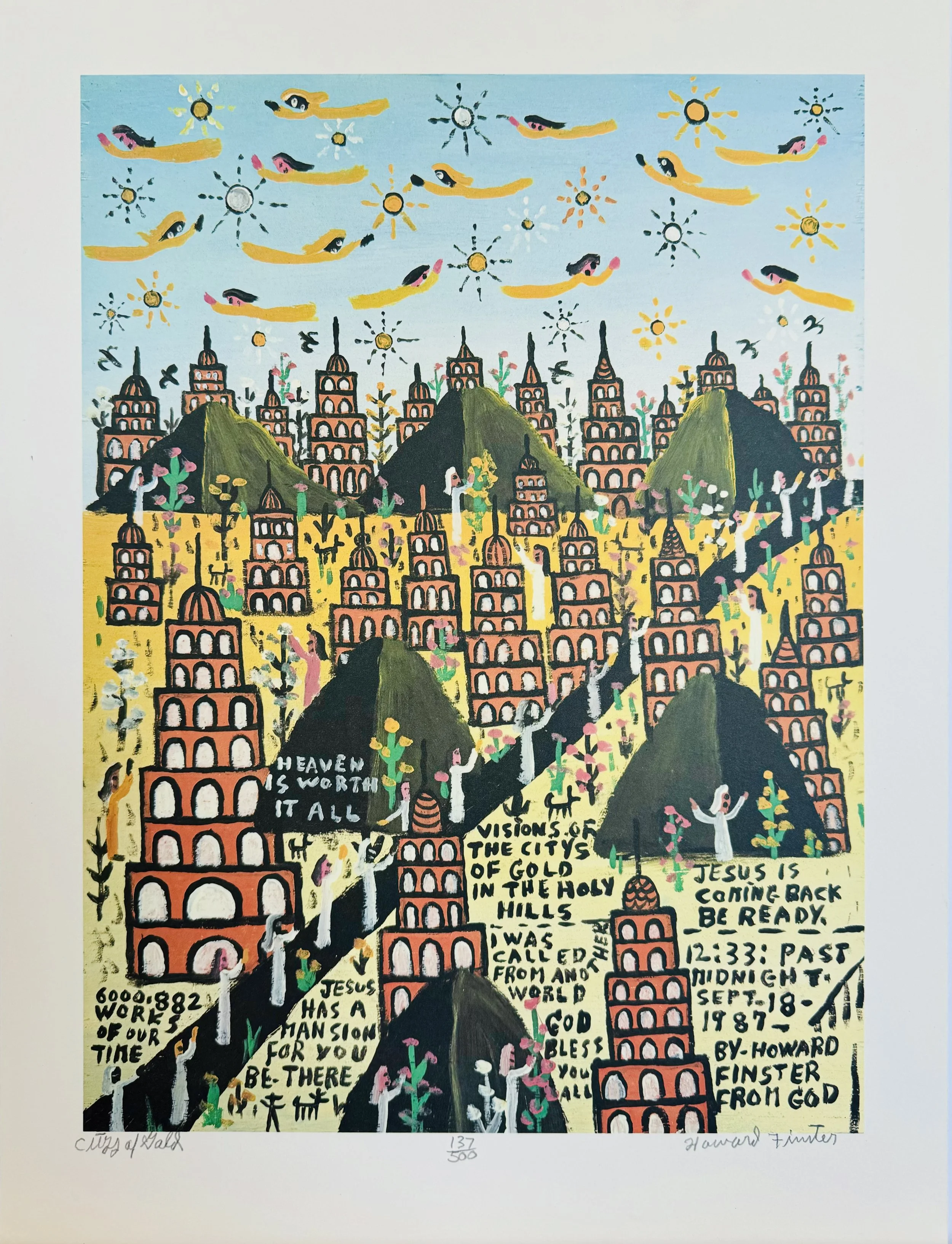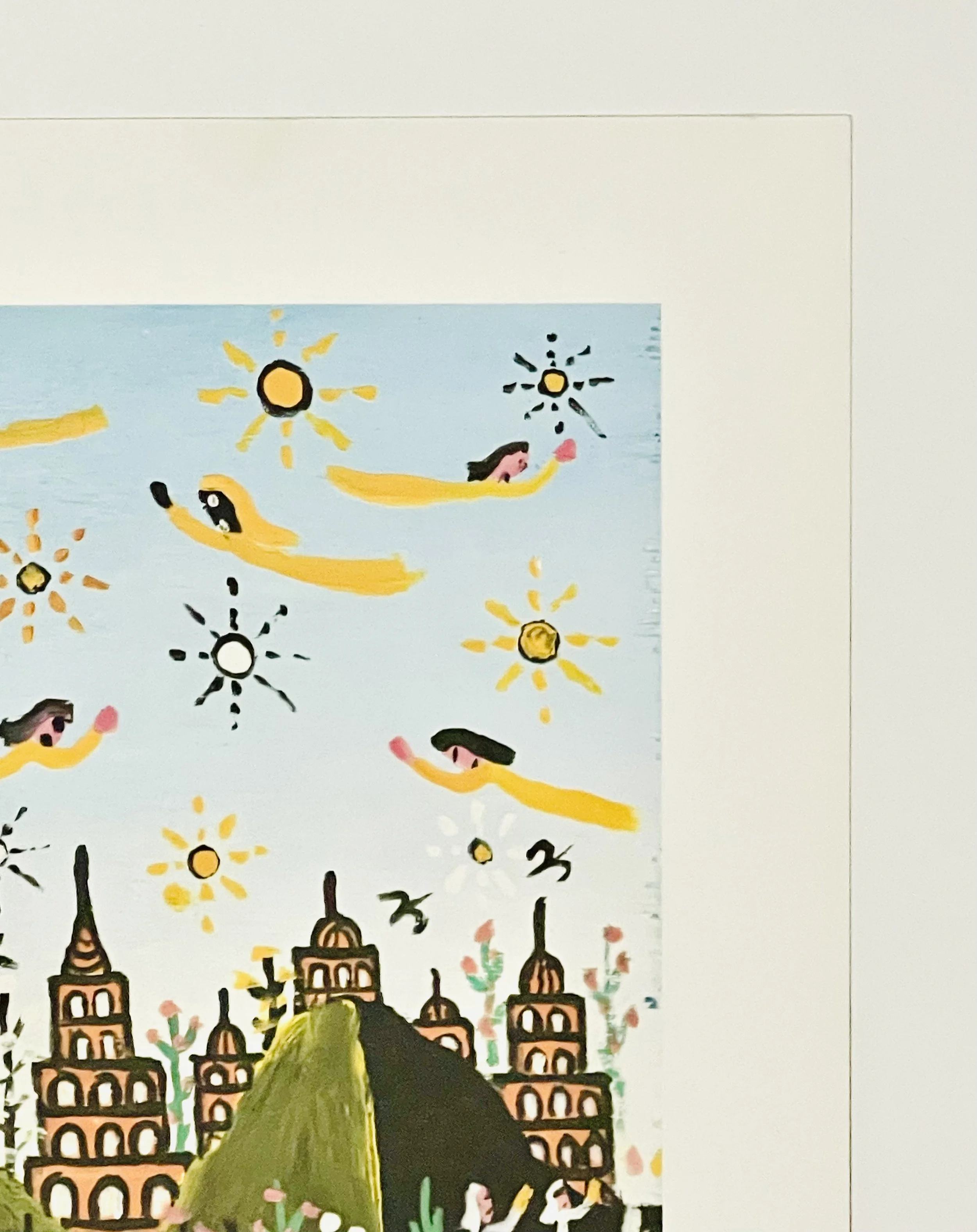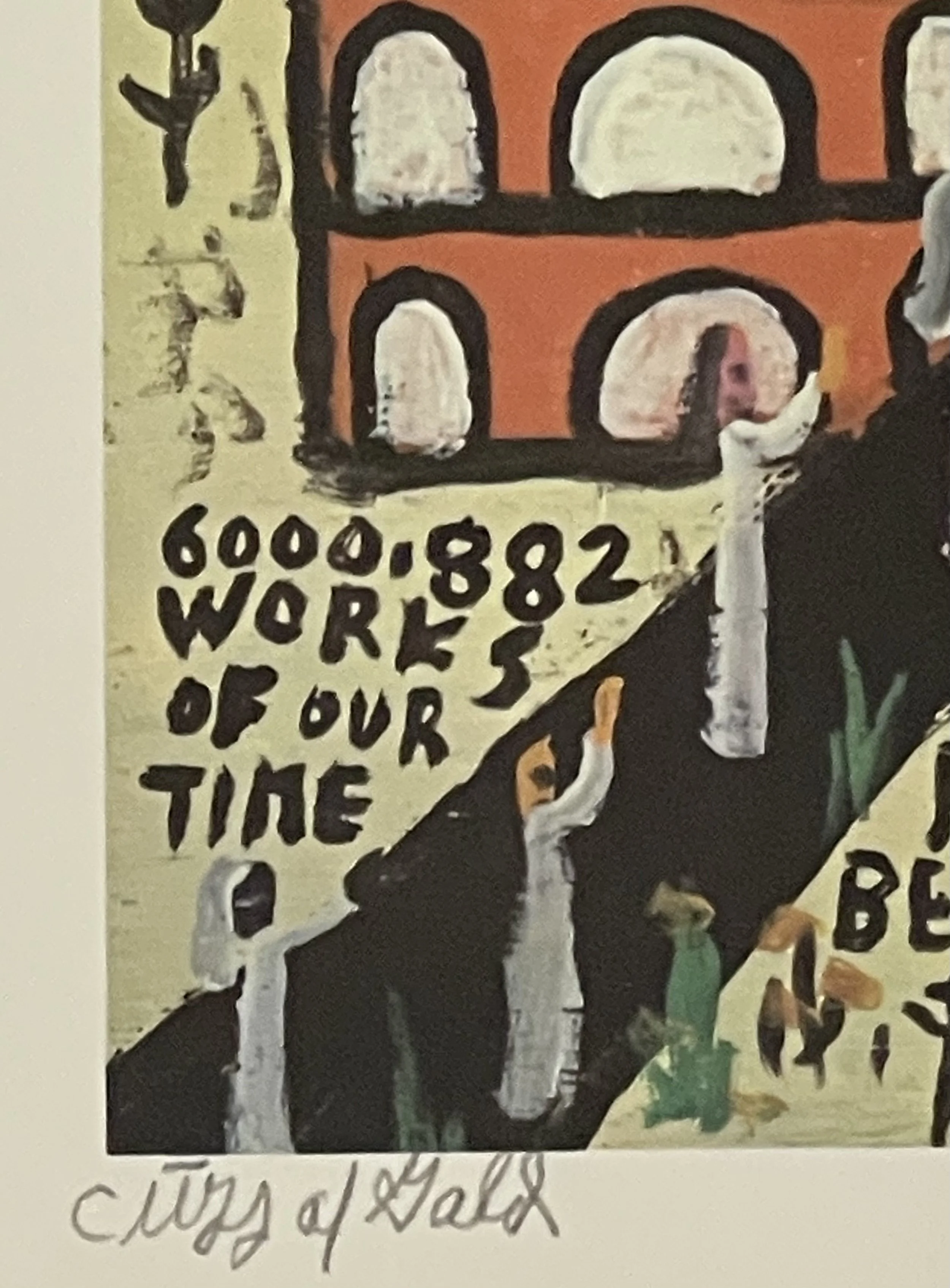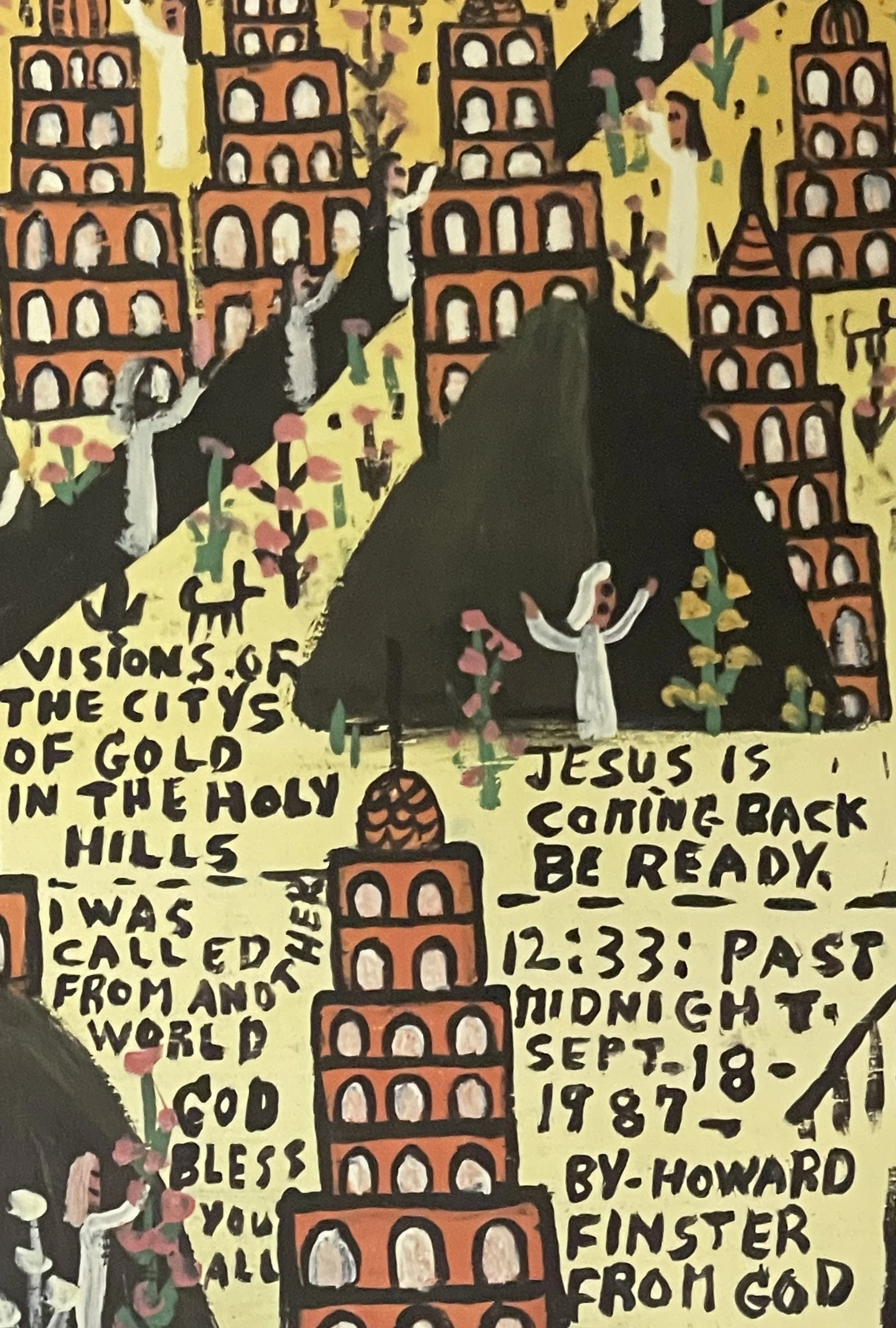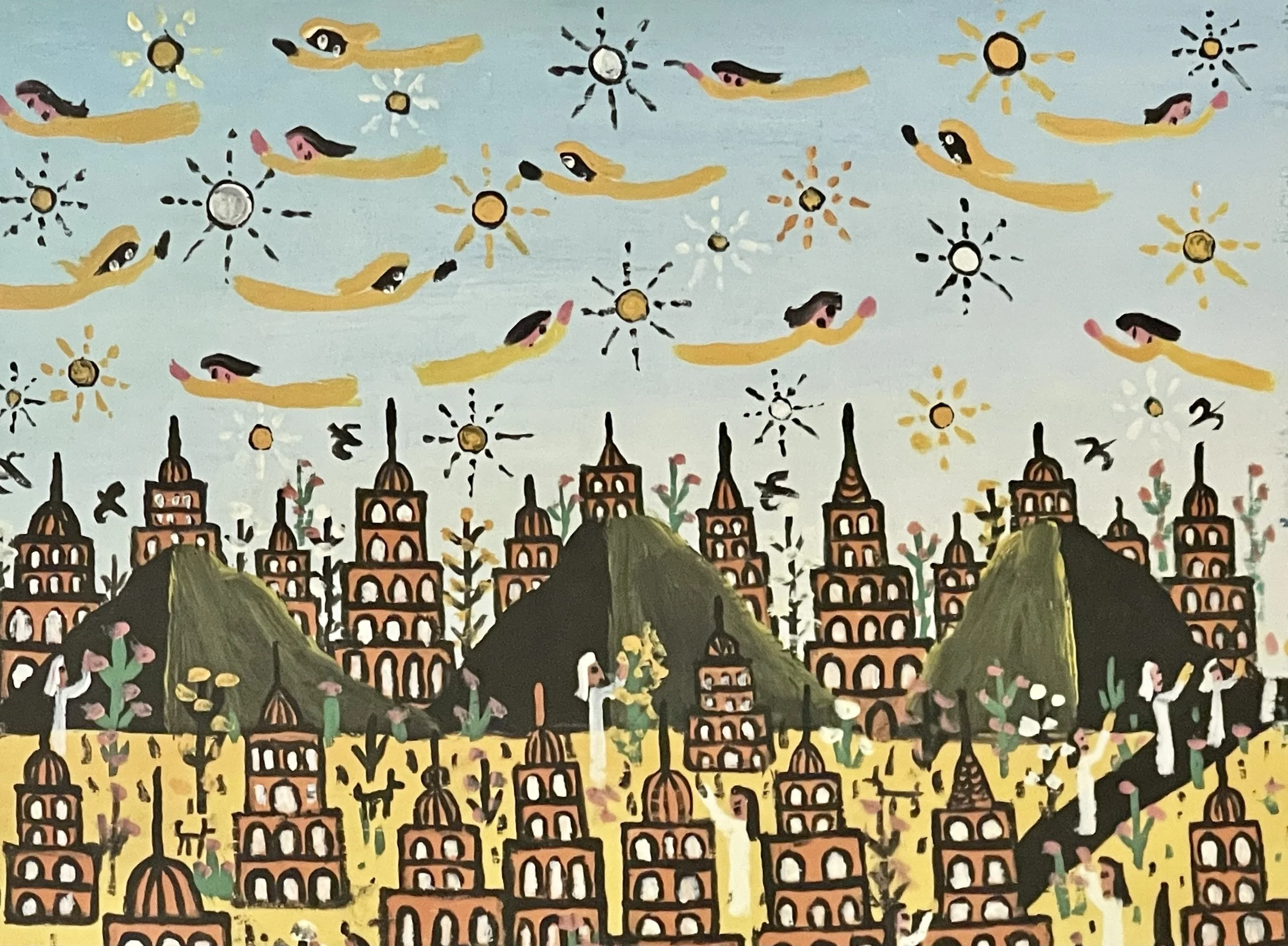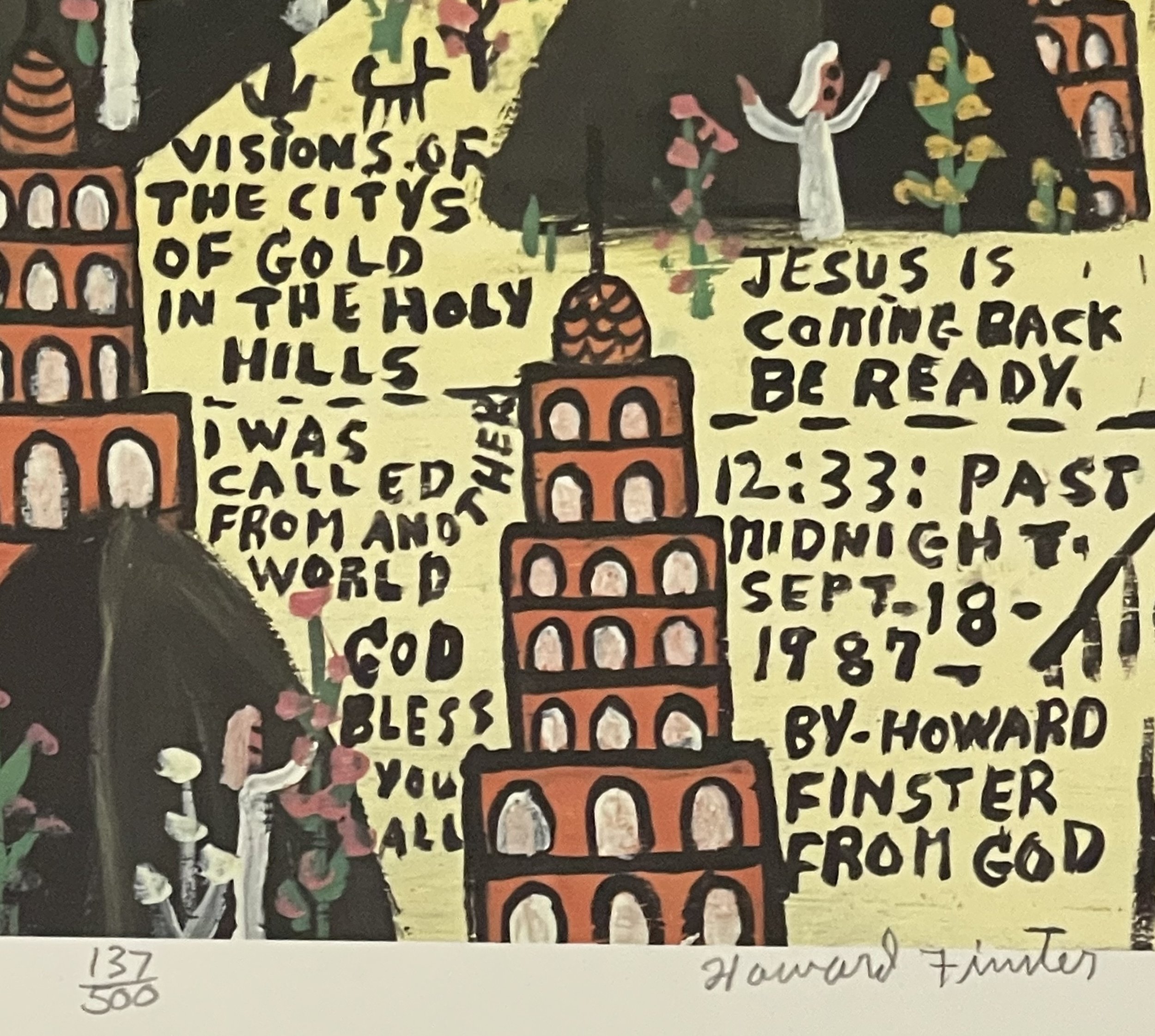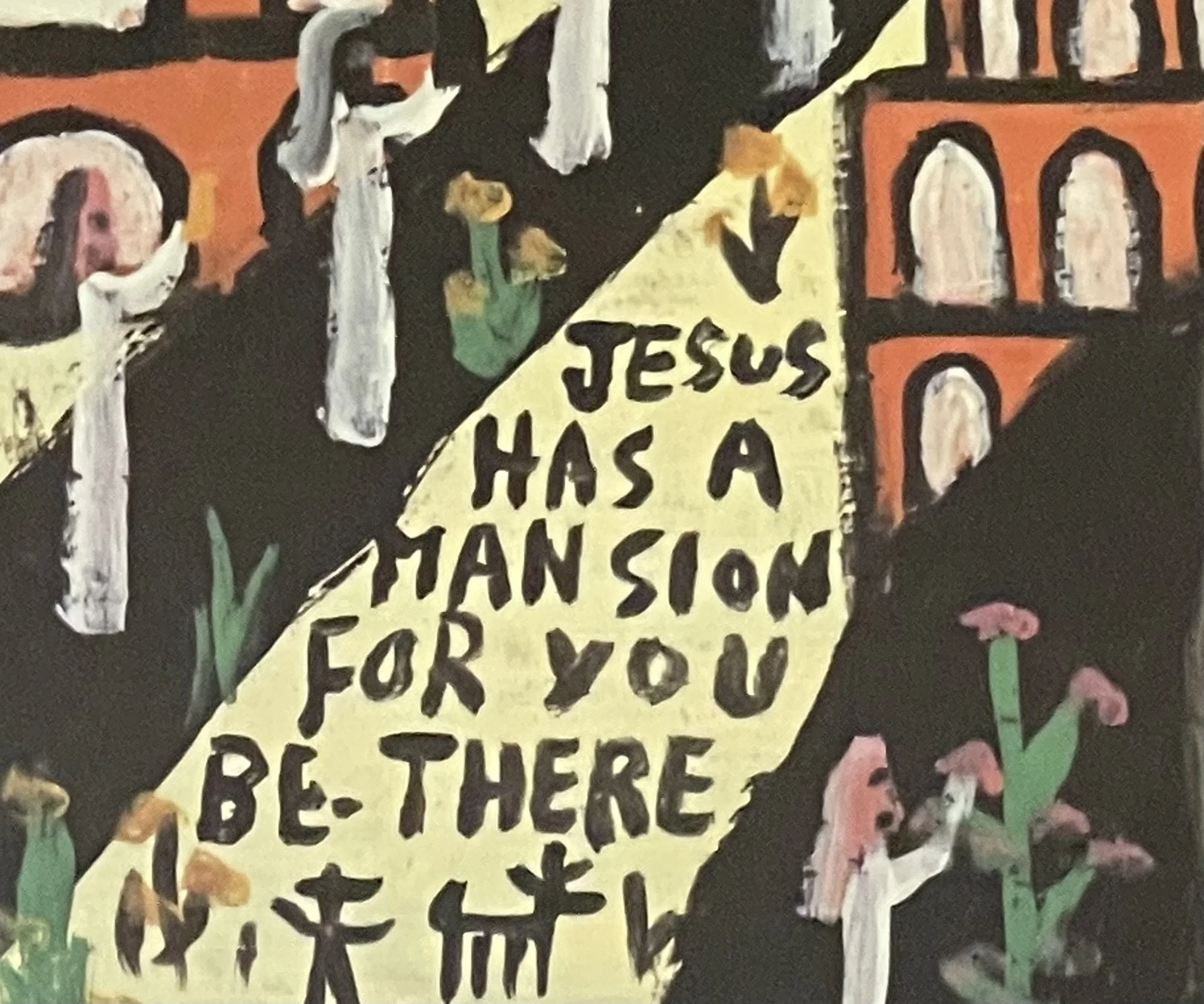11.5x15.75 lithograph "Cities of Gold" 137/500 Howard Finster
11.5x15.75 lithograph "Cities of Gold" 137/500 Howard Finster
Peter Mars purchased a group of these early Finster lithographs titled “Cities of Gold” from Paradise Garden, this is last one (as far as we know) from his collection. Finster’s paintings tell the stories of animals and angels from different planets that Reverend Finster traveled to throughout the galaxy and heaven. He walked up ladders into the sky in his visions and was given a lifetime of spiritual messages.
11.5 x 15.75 inches (image) on 14 x 18.75 archival paper
lithograph on archival paper
We accept offers & payment plans
Outside the U.S text or email your full shipping address with postal code and we will send a quote! 575-741-6111 or sedonafineart@gmail.com
A giant in the Outsider and Folk Art movements, Howard Finster (1916-2001) is considered the Grandfather of contemporary American Folk Art. Finster's work is in many major museum collections and countless private collections around the world. Howard Finster's album cover for the Talking Heads, his wild appearance on The Tonight Show starring Johnny Carson landed him on the front page of The Wall Street Journal, a documentary by the Smithsonian, and many other accolades are the signature of this artist, and his fascinating life story.
Howard Finster was a Baptist minister that stated God charged him to illustrate his religious visions in 1976 when ''A warm feeling came over me to paint sacred art.'' Finster was a larger-than-life personality with a devoted following long before he appeared on TV or in an R.E.M. music video. For his speaking engagements, he wore leisure suits and had his banjo at the ready. He sang with a melodious twang, and he could yodel with force, but it was his compelling ''sermons in paint'' that made him a folk art phenomenon.
Born in Valley Head, Alabama, Finster was one of thirteen children. At sixteen he preached his first sermon. In the 1940s, he hosted a radio program and wrote a column for the local newspaper. He led tent revivals and ''pastored'' many churches. To support his wife, Pauline, and their five children, he was also a bricklayer, carpenter, plumber, and took up the ''hard times business'' of bicycle and lawn mower repair. He had a great sense of humor, which he used in the service of the Word from the bible. He once said ''When I’m in big revivals, about the first thing I do a lot of times is to get the people tickled a little bit, get their mind off everything, then I get the message over to ‘em.''
In the 1960s, he began constructing Paradise Garden, a two-acre spiritual environment at his home in Pennville, Georgia. His plan was to display all the inventions of mankind. Embedded in the gardens cement walls, walkways, and playhouses were Bible verses, accumulated bicycle parts, TV tubes, mirror glass, Coca-Cola bottles, junk jewelry, plastic toys, a mound of cement snakes, and his sons tonsils ''put up in alcohol.'' Finster displayed his paintings and plywood cutouts of Santa Claus, Abraham Lincoln, famous inventors, and Bible figures in the garden, and it wasn’t long before collectors and the curious beat a path to his door to buy his art. ''They’d come here and just blow up on it, so I’d just take the crowbar and start pulling it off''. He made thousands of works of art that often combine written words with his own vocabulary of visual images.
At home Finster would kick back on his studio couch with a chaw of tobacco in his cheek and carry on a stream-of-consciousness monologue for hours. Like a perpetual-motion machine, he seemed to gain energy from his own oration.

